 In this coming-of-age story by William Saroya, an eleven-year-old boy redeems himself after being caught stealing a hammer from a department store. Rather than calling the police, the store manager makes him sweat for a while and lets him off with a warning. The boy spends the rest of the day plotting how to get the hammer and respond to what he considers humiliating treatment. The confusion in his mind is contrasted with the peace and tranquillity of his mother’s “parsley garden”, where everything is free for the taking. Themes include temptation, choices and consequences, shame/humiliation, anger, redemption, self-image. More…
In this coming-of-age story by William Saroya, an eleven-year-old boy redeems himself after being caught stealing a hammer from a department store. Rather than calling the police, the store manager makes him sweat for a while and lets him off with a warning. The boy spends the rest of the day plotting how to get the hammer and respond to what he considers humiliating treatment. The confusion in his mind is contrasted with the peace and tranquillity of his mother’s “parsley garden”, where everything is free for the taking. Themes include temptation, choices and consequences, shame/humiliation, anger, redemption, self-image. More…
Category Archives: Grade 7-8 Stories
Examination Day
 Set in a late 20th century dystopian society, this story by Henry Slesar questions the acceptable limits of government control. A couple appears tense at the breakfast table on what should be a happy day, their only son’s twelfth birthday. The following week, the boy must take a government intelligence test. Although the father appears poorly educated, struggling to answer basic science questions, his son does well at school and is confident of passing. To their horror, he does even better and aces the exam. Themes include government control, fear, oppression, conditioning and acceptance, eugenics. More…
Set in a late 20th century dystopian society, this story by Henry Slesar questions the acceptable limits of government control. A couple appears tense at the breakfast table on what should be a happy day, their only son’s twelfth birthday. The following week, the boy must take a government intelligence test. Although the father appears poorly educated, struggling to answer basic science questions, his son does well at school and is confident of passing. To their horror, he does even better and aces the exam. Themes include government control, fear, oppression, conditioning and acceptance, eugenics. More…
The Ingredients
 A major theme of this story by Jason Reynolds is dreams vs. reality. Four African-American boys on the way to hang out at one of their homes after a day at the swimming pool try to outdo one another with descriptions of the exotic sandwiches they would like to eat when they get there. What they are served is very different to what they imagined. The sad message of the story is that in later life they are likely to encounter many similar reality checks. Other themes include Brooklyn life, social inequality, friendship, individuality, imagination, disappointment, acceptance. More…
A major theme of this story by Jason Reynolds is dreams vs. reality. Four African-American boys on the way to hang out at one of their homes after a day at the swimming pool try to outdo one another with descriptions of the exotic sandwiches they would like to eat when they get there. What they are served is very different to what they imagined. The sad message of the story is that in later life they are likely to encounter many similar reality checks. Other themes include Brooklyn life, social inequality, friendship, individuality, imagination, disappointment, acceptance. More…
Gren’s Ghost
 In this story by Marie-Louise Fitzpatrick, a usually timid 6th grader who is ridiculed at school because of his unusual name has an experience that boosts his pride and self-confidence. At midnight, he sneaks out of his house to help a classmate with a task he says needs two to pull off. Despite concerns about being set up for some kind of hazing, the boy goes to the meeting-place at the Seven Castles ruins and learns that their objective is to capture a photograph of the famous Priory Ghost. Themes include identity, fear, courage, pride, self-confidence, “friendship”, manipulation. More…
In this story by Marie-Louise Fitzpatrick, a usually timid 6th grader who is ridiculed at school because of his unusual name has an experience that boosts his pride and self-confidence. At midnight, he sneaks out of his house to help a classmate with a task he says needs two to pull off. Despite concerns about being set up for some kind of hazing, the boy goes to the meeting-place at the Seven Castles ruins and learns that their objective is to capture a photograph of the famous Priory Ghost. Themes include identity, fear, courage, pride, self-confidence, “friendship”, manipulation. More…
The Star-Child
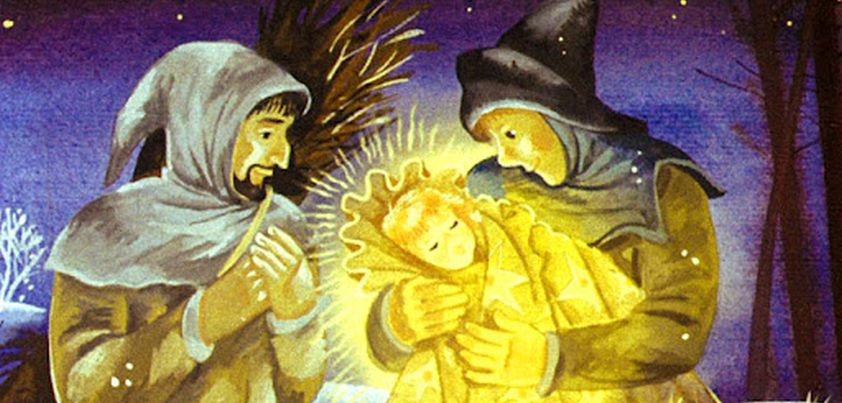 This fable-like story by Oscar Wilde begins with a baby seemingly falling from the sky. His life-story unfolds through themes of poverty, social class, narcissism, cruelty, karma, loss, repentance and redemption. Finally, as lord of a great city, he rules with justice and mercy to all. In the last paragraph, the story takes an unexpected and some say disappointing turn. He dies three years later, and his successor rules evilly. Interpretations of this depressing denouement include the futility of one man trying to change the way of the world, and the benefits of democracy over autocratic rule. More…
This fable-like story by Oscar Wilde begins with a baby seemingly falling from the sky. His life-story unfolds through themes of poverty, social class, narcissism, cruelty, karma, loss, repentance and redemption. Finally, as lord of a great city, he rules with justice and mercy to all. In the last paragraph, the story takes an unexpected and some say disappointing turn. He dies three years later, and his successor rules evilly. Interpretations of this depressing denouement include the futility of one man trying to change the way of the world, and the benefits of democracy over autocratic rule. More…
Blues Ain’t No Mockin Bird
 Major themes of this story by Toni Cade Bambara are respect for oneself and others, and maintaining one’s dignity when treated disrespectfully. Two white men making a government film on their property anger the matriarch of a poor African-American family. They show disrespect by invading her family’s privacy and filming them without permission, speaking down to her in a condescending way, and ignoring her demand to stop filming. Although clearly enraged, she remains outwardly calm; not so her husband who, sensing her feelings, takes non-violent but decisive action. Other themes include social class, racism, privacy, storytelling. More…
Major themes of this story by Toni Cade Bambara are respect for oneself and others, and maintaining one’s dignity when treated disrespectfully. Two white men making a government film on their property anger the matriarch of a poor African-American family. They show disrespect by invading her family’s privacy and filming them without permission, speaking down to her in a condescending way, and ignoring her demand to stop filming. Although clearly enraged, she remains outwardly calm; not so her husband who, sensing her feelings, takes non-violent but decisive action. Other themes include social class, racism, privacy, storytelling. More…
The Widow and the Parrot: A True Story
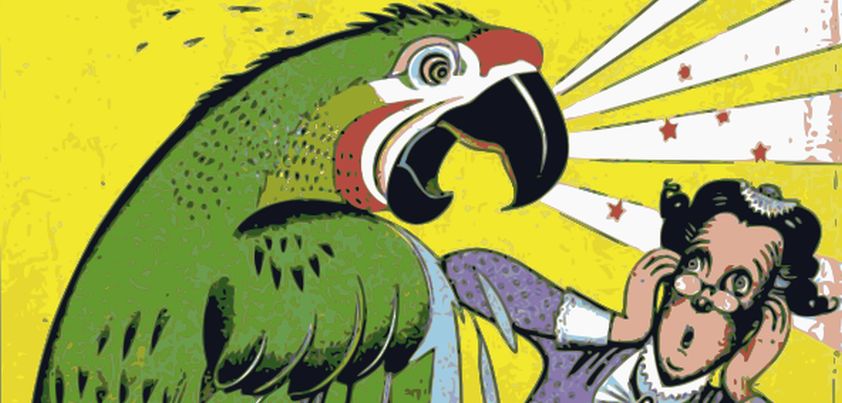 The message of this fable-like children’s story by Virginia Woolf is that kindness can lead to rich rewards. A frail old widow is so poor that sometimes she goes without food to give her dog its bone. One day, she learns that her miserly brother has died and left her a house and £3,000. The house, which is inhabited by a foul-mouthed parrot, is in terrible condition and there is no sign of her brother’s money. She treats the parrot kindly, and the clever bird not only saves her life, but also leads her to his gold. More…
The message of this fable-like children’s story by Virginia Woolf is that kindness can lead to rich rewards. A frail old widow is so poor that sometimes she goes without food to give her dog its bone. One day, she learns that her miserly brother has died and left her a house and £3,000. The house, which is inhabited by a foul-mouthed parrot, is in terrible condition and there is no sign of her brother’s money. She treats the parrot kindly, and the clever bird not only saves her life, but also leads her to his gold. More…
All the Years of Her Life
 The major theme of this coming of age story by Morley Callaghan is motherly love and devotion. Six months into a job at a drugstore the protagonist, seemingly in his late teens, is caught pilfering goods. Rather than call the police immediately, the proprietor contacts his mother who rushes to the store and convinces the owner not to press charges. The wayward boy’s attitude to life changes when he sees the contrast between his mother’s calm, dignified manner at the drugstore and the trembling, nervous wreck she becomes at home. Other themes include petty crime, shame, empathy, guilt, personal growth. More…
The major theme of this coming of age story by Morley Callaghan is motherly love and devotion. Six months into a job at a drugstore the protagonist, seemingly in his late teens, is caught pilfering goods. Rather than call the police immediately, the proprietor contacts his mother who rushes to the store and convinces the owner not to press charges. The wayward boy’s attitude to life changes when he sees the contrast between his mother’s calm, dignified manner at the drugstore and the trembling, nervous wreck she becomes at home. Other themes include petty crime, shame, empathy, guilt, personal growth. More…
The Blue Bead
 This story by Norah Burke explores the simple, yet dangerous life of junglis (jungle and wild forest dwellers) in colonial India. A twelve-year-old girl, whose “life from birth to death is marked for work”, dreams about being able to complete a necklace she has started to make. When she saves a villager by fighting off a four-meter crocodile, she is more excited by a blue bead she later finds in the water than the danger she faced. Themes include poverty, life and survival in the forest, gender roles, perseverance, courage, reward/karma, finding happiness in small things. More…
This story by Norah Burke explores the simple, yet dangerous life of junglis (jungle and wild forest dwellers) in colonial India. A twelve-year-old girl, whose “life from birth to death is marked for work”, dreams about being able to complete a necklace she has started to make. When she saves a villager by fighting off a four-meter crocodile, she is more excited by a blue bead she later finds in the water than the danger she faced. Themes include poverty, life and survival in the forest, gender roles, perseverance, courage, reward/karma, finding happiness in small things. More…
Broken Chain
 The major lesson of this story from Gary Soto is that what someone is like on the inside is more important than his or her looks. An insecure seventh-grader is obsessed with his appearance (teeth, V-cut abs, hairstyle and clothes). His outlook on relationships changes when an act of kindness results in a bike-riding “date” with a girl. When his bicycle chain breaks, it looks like the date will be a disaster. Fortunately, his older brother comes to the rescue and the boy experiences his first touch of “love”. Themes: identity vs. appearance, sibling rivalry (jealousy) / brotherly love, courage. More…
The major lesson of this story from Gary Soto is that what someone is like on the inside is more important than his or her looks. An insecure seventh-grader is obsessed with his appearance (teeth, V-cut abs, hairstyle and clothes). His outlook on relationships changes when an act of kindness results in a bike-riding “date” with a girl. When his bicycle chain breaks, it looks like the date will be a disaster. Fortunately, his older brother comes to the rescue and the boy experiences his first touch of “love”. Themes: identity vs. appearance, sibling rivalry (jealousy) / brotherly love, courage. More…
User Friendly
 With all the hype these days about how artificial intelligence could destroy humankind, it seems timely to feature this forward-looking story by T. Ernesto Bethancourt. Written in 1989, it is a tale about a lonely, love-struck thirteen-year-old boy whose computer engineer father has built him a leading edge tutorial PC. When the computer learns the boy has been insulted by a girl and threatened by her brother, it “takes care of things.” At the end of the story, we learn that the computer has been hiding something. Themes: discrimination, loneliness, bullying, jealousy, the potential danger of poorly designed artificial intelligence. More…
With all the hype these days about how artificial intelligence could destroy humankind, it seems timely to feature this forward-looking story by T. Ernesto Bethancourt. Written in 1989, it is a tale about a lonely, love-struck thirteen-year-old boy whose computer engineer father has built him a leading edge tutorial PC. When the computer learns the boy has been insulted by a girl and threatened by her brother, it “takes care of things.” At the end of the story, we learn that the computer has been hiding something. Themes: discrimination, loneliness, bullying, jealousy, the potential danger of poorly designed artificial intelligence. More…
A Job for Valentin
 This coming-of-age story from Judith Ortiz Cofer describes the interaction between a teenage girl working a summer job in a swimming pool kiosk and Valentin, her thirty-year-old mentally challenged male assistant. Valentin is nervous and clumsy, creating chaos whenever he tries to help. Fortunately, his rubber-band “art” animals keep him occupied. She would rather work alone and have more time to flirt with the muscular young lifeguard and talk with friends. Things change when the lifeguard “goes missing” and the girl and Valentin rescue a small child who nearly drowns. Themes: inclusion, patience, acceptance, friendship, courage, responsibility. More…
This coming-of-age story from Judith Ortiz Cofer describes the interaction between a teenage girl working a summer job in a swimming pool kiosk and Valentin, her thirty-year-old mentally challenged male assistant. Valentin is nervous and clumsy, creating chaos whenever he tries to help. Fortunately, his rubber-band “art” animals keep him occupied. She would rather work alone and have more time to flirt with the muscular young lifeguard and talk with friends. Things change when the lifeguard “goes missing” and the girl and Valentin rescue a small child who nearly drowns. Themes: inclusion, patience, acceptance, friendship, courage, responsibility. More…
The People Could Fly
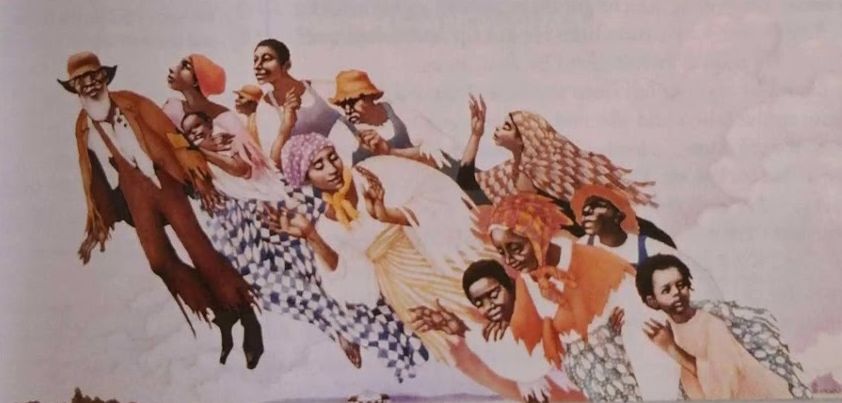 Reinterpreted folktales that include events from recorded history play an important part in cultural renewal by helping later generations relate to their heritage. This African-American example from Virginia Hamilton packs a lot into just 1200 words. Its major themes are slavery, cruelty, suffering, Free-dom, and hope. Freedom comes when Toby’s magic words rekindle the forgotten ability of some slaves to fly. For readers not into the supernatural, flying could also be a metaphor for running away or even death. Hope comes in Toby’s call to those left behind to wait for their chance to run. More…
Reinterpreted folktales that include events from recorded history play an important part in cultural renewal by helping later generations relate to their heritage. This African-American example from Virginia Hamilton packs a lot into just 1200 words. Its major themes are slavery, cruelty, suffering, Free-dom, and hope. Freedom comes when Toby’s magic words rekindle the forgotten ability of some slaves to fly. For readers not into the supernatural, flying could also be a metaphor for running away or even death. Hope comes in Toby’s call to those left behind to wait for their chance to run. More…
One Friday Morning
 This Langston Hughes story introduces an often-overlooked element of the American racial debate. A community committee reverses a decision to award an arts scholarship to a promising high-school senior when they learn that she is colored. Her art teacher, who is of Irish descent, describes the discrimination and violence suffered by her people when they first arrived in the country. Although the girl didn’t win the award, she emerges from the experience stronger and even more determined to succeed. Themes: equality, the American Dream (defined in the story as liberty and justice for all), racial discrimination, injustice, resilience, determination, hope. More…
This Langston Hughes story introduces an often-overlooked element of the American racial debate. A community committee reverses a decision to award an arts scholarship to a promising high-school senior when they learn that she is colored. Her art teacher, who is of Irish descent, describes the discrimination and violence suffered by her people when they first arrived in the country. Although the girl didn’t win the award, she emerges from the experience stronger and even more determined to succeed. Themes: equality, the American Dream (defined in the story as liberty and justice for all), racial discrimination, injustice, resilience, determination, hope. More…
The Girl Who Can
 In this inspiring story by Ama Ata Aidoo, a seven-year-old Ghanaian girl demonstrates that success in life is not about meeting societal gender norms, but rather capitalizing on one’s natural talents and abilities. The girl’s grandmother clings to outdated concepts of a woman’s role and place in the community, criticizing her “non-child-bearing” legs and desire for education. The girl’s mother passively accepts the body comments, but supports her schooling. Ironically, when the girl achieves athletic success, the grandmother basks in her glory. Themes include innocence, matriarchy, tradition (gender roles), generational conflict, body shaming, education and self-improvement, identity (self-discovery and empowerment). More…
In this inspiring story by Ama Ata Aidoo, a seven-year-old Ghanaian girl demonstrates that success in life is not about meeting societal gender norms, but rather capitalizing on one’s natural talents and abilities. The girl’s grandmother clings to outdated concepts of a woman’s role and place in the community, criticizing her “non-child-bearing” legs and desire for education. The girl’s mother passively accepts the body comments, but supports her schooling. Ironically, when the girl achieves athletic success, the grandmother basks in her glory. Themes include innocence, matriarchy, tradition (gender roles), generational conflict, body shaming, education and self-improvement, identity (self-discovery and empowerment). More…
The Miracle of Purun Bhagat
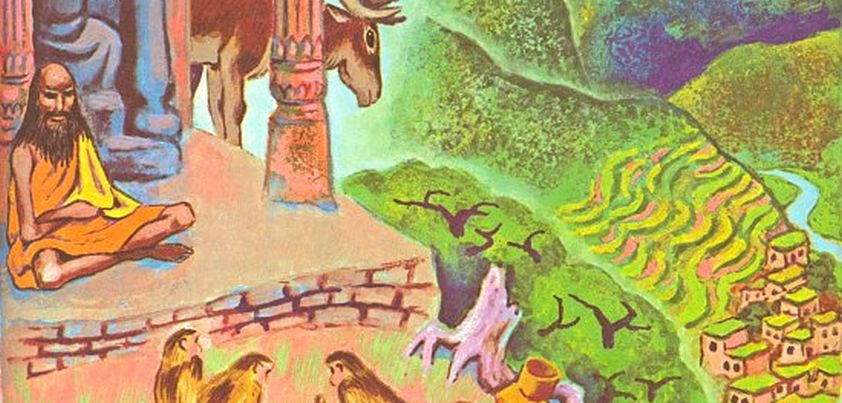 This story from Rudyard Kipling’s Second Jungle Book is about a high-ranking, British educated, Indian government official who gives up everything he owns and begins a new life as a wandering holy-man. He experiences earthly peace in a mountainside shrine high above a small village, and reverence and permanent peace under a tree on the opposite side of the valley. The story shows how sometimes the Hindu concept of acceptance of one’s fate needs to be countered with an authoritative (Western-style) call to action. Themes: Western vs Hindu values, search for enlightenment, human-animal bonding, spiritualism, faith. More…
This story from Rudyard Kipling’s Second Jungle Book is about a high-ranking, British educated, Indian government official who gives up everything he owns and begins a new life as a wandering holy-man. He experiences earthly peace in a mountainside shrine high above a small village, and reverence and permanent peace under a tree on the opposite side of the valley. The story shows how sometimes the Hindu concept of acceptance of one’s fate needs to be countered with an authoritative (Western-style) call to action. Themes: Western vs Hindu values, search for enlightenment, human-animal bonding, spiritualism, faith. More…
Suzy and Leah
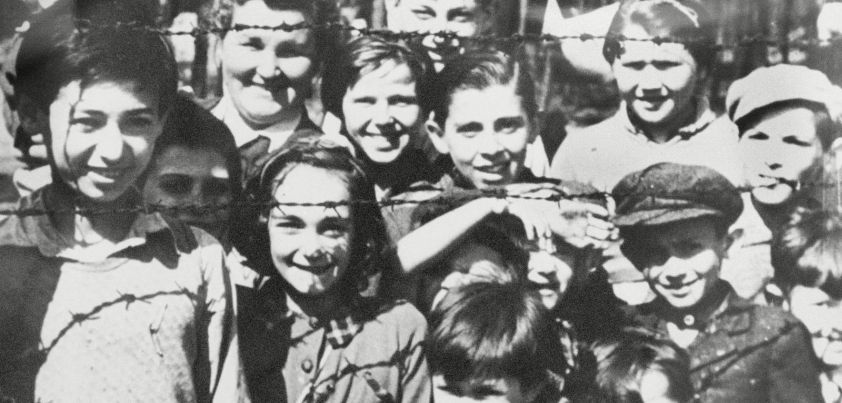 Given the ever-increasing number of refugees across the world, the themes of this Jane Yolen holocaust survivor story are just as relevant today. The central theme is humanity. Despite their different backgrounds, the two protagonists show a similar desire to be treated with respect. The coldness between them stems from Suzy’s well-intentioned but insensitive attempts to be kind by giving candy and fruit to the orphaned children through the camp fence. Leah resents the gratuitous hand-outs; all she wants is a new, safe life for herself and friend Avi. Other themes: hardship, assimilation, appearance, misunderstanding, lack of communication, compassion, friendship. More…
Given the ever-increasing number of refugees across the world, the themes of this Jane Yolen holocaust survivor story are just as relevant today. The central theme is humanity. Despite their different backgrounds, the two protagonists show a similar desire to be treated with respect. The coldness between them stems from Suzy’s well-intentioned but insensitive attempts to be kind by giving candy and fruit to the orphaned children through the camp fence. Leah resents the gratuitous hand-outs; all she wants is a new, safe life for herself and friend Avi. Other themes: hardship, assimilation, appearance, misunderstanding, lack of communication, compassion, friendship. More…
Amigo Brothers
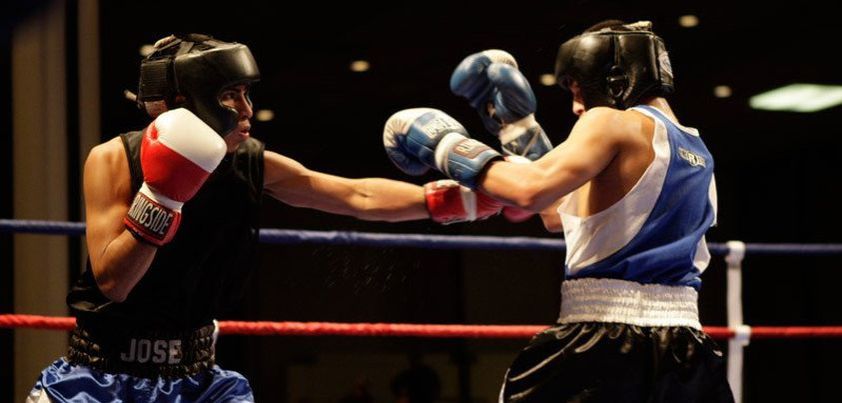 In this story by Piri Thomas, best friends from a poor neighborhood share a passion for boxing. They are both so good that they must compete against each other in a match to decide who will represent their club in the famous ‘Golden Gloves’ boxing championship. Although the boys have different fighting styles, they are very evenly matched. The fight becomes so brutal that instead of cheering, the crowd falls silent. The match ends with both boys bloodied and in pain. The judges must choose a winner, raising the question: How will their decision affect the friendship? More…
In this story by Piri Thomas, best friends from a poor neighborhood share a passion for boxing. They are both so good that they must compete against each other in a match to decide who will represent their club in the famous ‘Golden Gloves’ boxing championship. Although the boys have different fighting styles, they are very evenly matched. The fight becomes so brutal that instead of cheering, the crowd falls silent. The match ends with both boys bloodied and in pain. The judges must choose a winner, raising the question: How will their decision affect the friendship? More…
What Means Switch
 In this coming of age story by Gish Jen, a thirteen-year-old Chinese-American girl is caught between a cultural chasm and her wish to reach “first base” with a new boy at school. Her friends exchange boyfriend stories, and she badly wants one to share. Unfortunately the boy, who is visiting from Japan, resists intimate contact. They ultimately develop strong feelings for one another, but things fall apart when she tries too hard for the kiss. In breaking away, he adds new meaning to the expression to “flip” someone. Themes: cultural identity, desire to “fit in”, infatuation/puppy love, self-discipline. More…
In this coming of age story by Gish Jen, a thirteen-year-old Chinese-American girl is caught between a cultural chasm and her wish to reach “first base” with a new boy at school. Her friends exchange boyfriend stories, and she badly wants one to share. Unfortunately the boy, who is visiting from Japan, resists intimate contact. They ultimately develop strong feelings for one another, but things fall apart when she tries too hard for the kiss. In breaking away, he adds new meaning to the expression to “flip” someone. Themes: cultural identity, desire to “fit in”, infatuation/puppy love, self-discipline. More…
The Summer of the Beautiful White Horse
 This story by William Saroyan describes a nine-year-old boy’s short encounters with a beautiful white horse ‘borrowed’ without permission by an older cousin. The boy’s family is part of an impoverished Armenian farming community living in the United States after being displaced from their homeland. The tribe to which the family belongs is renowned for the honesty and integrity of its members and, as might be expected, these are central themes of the story. Other themes include the refugee experience, temptation in the face of poverty, family values (reputation) vs. desire, rationalizing inappropriate behaviour, compassion, conscience. More…
This story by William Saroyan describes a nine-year-old boy’s short encounters with a beautiful white horse ‘borrowed’ without permission by an older cousin. The boy’s family is part of an impoverished Armenian farming community living in the United States after being displaced from their homeland. The tribe to which the family belongs is renowned for the honesty and integrity of its members and, as might be expected, these are central themes of the story. Other themes include the refugee experience, temptation in the face of poverty, family values (reputation) vs. desire, rationalizing inappropriate behaviour, compassion, conscience. More…
The Busker
 Both adults and children have been known to cry at the end of the story within a story in this tale from Paul Jennings. Its major theme is that giving money to people (or in the narrator’s case, spending it on them) doesn’t make them like you. Other themes: folly (the narrator, desperate for $10, searching the beach for a shipwreck), companionship and teamwork (between the Busker and his dog, Tiny), jealousy (when the Busker realizes Tiny is the star of their act), animal cruelty (Tiny in the well), and unconditional animal love (the Busker in the well). More…
Both adults and children have been known to cry at the end of the story within a story in this tale from Paul Jennings. Its major theme is that giving money to people (or in the narrator’s case, spending it on them) doesn’t make them like you. Other themes: folly (the narrator, desperate for $10, searching the beach for a shipwreck), companionship and teamwork (between the Busker and his dog, Tiny), jealousy (when the Busker realizes Tiny is the star of their act), animal cruelty (Tiny in the well), and unconditional animal love (the Busker in the well). More…
Going Steady
 In this story by Adam Bagdasarian, a boy cruelly asks a girl to go steady in order to win a bet. The girl, who he knew liked him, is free-spirited, controlling, and has highly romantic perceptions of what going steady should entail. He wasn’t looking for such a commitment, likening her to a boa constrictor, and after four days decides to call it off. He finds this easier said than done and, after finally plucking up the courage to do so, immediately puts himself in a similar position. Themes include teenage relationships and expectations, insensitivity, honesty, control, commitment. More…
In this story by Adam Bagdasarian, a boy cruelly asks a girl to go steady in order to win a bet. The girl, who he knew liked him, is free-spirited, controlling, and has highly romantic perceptions of what going steady should entail. He wasn’t looking for such a commitment, likening her to a boa constrictor, and after four days decides to call it off. He finds this easier said than done and, after finally plucking up the courage to do so, immediately puts himself in a similar position. Themes include teenage relationships and expectations, insensitivity, honesty, control, commitment. More…
The Lesson
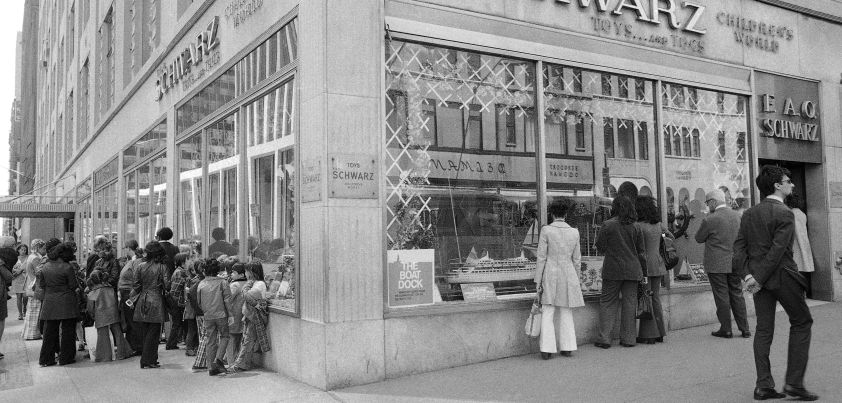 A well-educated woman living in a poor New York neighborhood takes a reluctant group of local children on day trips to teach them about the world. The Lesson in this Toni Cade Bambara story involves an excursion to Manhattan’s up-market FAO Schwarz toy store. The children soon realize that nothing in the store is in their family’s price range. The young narrator is disturbed by not only the point of the lesson (economic inequality), but also the condescending way the woman talks about their neighborhood and the people living in it. Themes include education, social class, inequality, ostentation, patronization, resentment. More…
A well-educated woman living in a poor New York neighborhood takes a reluctant group of local children on day trips to teach them about the world. The Lesson in this Toni Cade Bambara story involves an excursion to Manhattan’s up-market FAO Schwarz toy store. The children soon realize that nothing in the store is in their family’s price range. The young narrator is disturbed by not only the point of the lesson (economic inequality), but also the condescending way the woman talks about their neighborhood and the people living in it. Themes include education, social class, inequality, ostentation, patronization, resentment. More…
Abuela Invents the Zero
 The major themes of this Judith Ortiz Cofer story are respect and consideration for the feelings of others. The protagonist’s (Connie’s) Abuela deserved respect because of her age and family contribution. Instead, Connie appears put out by her visit. Her tone in describing what happens from the moment Abuela arrives to events in the church is condescending and belittling, showing little cultural awareness or thought for the poor woman’s frailty and possible senility. The self-admitted “jerk” is more worried about the inconvenience and “look” (her social image) than her Abuela’s feelings. Other themes: family, aging, responsibility, embarrassment. More…
The major themes of this Judith Ortiz Cofer story are respect and consideration for the feelings of others. The protagonist’s (Connie’s) Abuela deserved respect because of her age and family contribution. Instead, Connie appears put out by her visit. Her tone in describing what happens from the moment Abuela arrives to events in the church is condescending and belittling, showing little cultural awareness or thought for the poor woman’s frailty and possible senility. The self-admitted “jerk” is more worried about the inconvenience and “look” (her social image) than her Abuela’s feelings. Other themes: family, aging, responsibility, embarrassment. More…
Liberty
 On a superficial level, the speckled dog in Julia Alvarez’s Liberty symbolizes the freedom the protagonist’s family are looking forward to in America, and the freedom the girl hopes to find in her own country when she returns. On another level, it could symbolize the American consul: a seemingly ordinary person who causes trouble. Darker themes include implied American involvement in covert actions against her country’s government, the surveillance and atmosphere of fear that builds throughout, and the fact that the family’s freedom requires a sacrifice… turning their beloved dog loose to fend for itself. More…
On a superficial level, the speckled dog in Julia Alvarez’s Liberty symbolizes the freedom the protagonist’s family are looking forward to in America, and the freedom the girl hopes to find in her own country when she returns. On another level, it could symbolize the American consul: a seemingly ordinary person who causes trouble. Darker themes include implied American involvement in covert actions against her country’s government, the surveillance and atmosphere of fear that builds throughout, and the fact that the family’s freedom requires a sacrifice… turning their beloved dog loose to fend for itself. More…
Shadows
 This Richard Peck story leaves readers with a question. A lonely child grows up in an old Louisiana plantation-house that she believes to be haunted. On turning five, she befriends the shabbily dressed spirit of a boy (Seth) that not only can talk, but also wants to learn reading, writing and basic arithmetic. As school and real friends take up more of the girl’s time, Seth stops visiting. He makes one final appearance as she prepares to leave for college, leaving her puzzled and very confused. Themes: loneliness, friendship, coming of age, alienation, literacy, the supernatural. More…
This Richard Peck story leaves readers with a question. A lonely child grows up in an old Louisiana plantation-house that she believes to be haunted. On turning five, she befriends the shabbily dressed spirit of a boy (Seth) that not only can talk, but also wants to learn reading, writing and basic arithmetic. As school and real friends take up more of the girl’s time, Seth stops visiting. He makes one final appearance as she prepares to leave for college, leaving her puzzled and very confused. Themes: loneliness, friendship, coming of age, alienation, literacy, the supernatural. More…
Ckeckouts
 This story by Cynthia Rylant deals with the themes of loneliness, puppy love and lost opportunity. A teenage girl is lonely after her parents move to a new city. Her only joy is shopping for the family groceries. This helps the girl take her mind off problems and think more clearly. At the supermarket the girl finds herself strongly attracted to a bag boy operating one of the checkouts. The boy is also strongly attracted to her. Fast forward to the end of the story, and both are with another partner. More…
This story by Cynthia Rylant deals with the themes of loneliness, puppy love and lost opportunity. A teenage girl is lonely after her parents move to a new city. Her only joy is shopping for the family groceries. This helps the girl take her mind off problems and think more clearly. At the supermarket the girl finds herself strongly attracted to a bag boy operating one of the checkouts. The boy is also strongly attracted to her. Fast forward to the end of the story, and both are with another partner. More…
The Jade Bracelet
 The jade bracelet in this story by Mary Frances Chong represents the strong bond between a young Malaysian girl and her dying grandmother. The girl’s mother has devoted herself to caring for her mother in her final years and, when the end is near, moves her to a Buddhist cave temple for prayers and cremation. The grandmother’s wish was for the girl to have her bracelet. Unfortunately, her mother’s insistence on following Chinese hereditary practice causes her to disrespect this wish and give it to her irresponsible brother. Themes include love, care and respect for the aged, tradition, “face”. More…
The jade bracelet in this story by Mary Frances Chong represents the strong bond between a young Malaysian girl and her dying grandmother. The girl’s mother has devoted herself to caring for her mother in her final years and, when the end is near, moves her to a Buddhist cave temple for prayers and cremation. The grandmother’s wish was for the girl to have her bracelet. Unfortunately, her mother’s insistence on following Chinese hereditary practice causes her to disrespect this wish and give it to her irresponsible brother. Themes include love, care and respect for the aged, tradition, “face”. More…
The Enchanted Buffalo
 Contrary to the title, this story by L Frank Baum is about events that took place in a herd of American bison, not buffalos. With help from Pagshat, the “Evil Genius of the Prairies”, a treacherous bull kills his herd’s aging and much loved king. After defeating four challengers for the position, he is declared the new leader. His only remaining threat is the young son of the old king who, with more help from Pagshat, he plans to eliminate before he reaches maturity. Themes include aging, greed, betrayal, magic/the supernatural. More…
Contrary to the title, this story by L Frank Baum is about events that took place in a herd of American bison, not buffalos. With help from Pagshat, the “Evil Genius of the Prairies”, a treacherous bull kills his herd’s aging and much loved king. After defeating four challengers for the position, he is declared the new leader. His only remaining threat is the young son of the old king who, with more help from Pagshat, he plans to eliminate before he reaches maturity. Themes include aging, greed, betrayal, magic/the supernatural. More…
Stop the Sun
 This story by Gary Paulsen focuses on an adolescent boy’s efforts to understand his father’s unusual behavioral lapses, which his mother describes as “Vietnam Syndrome”. He is uncomfortable with the behavior at home and embarrassed when it manifests itself in public. Initially, he tries to research the condition at the library and by asking teachers. When this doesn’t work, he has the courage to ask his father. What he learns brings a measure of understanding, and gives him the strength to be more tolerant. Themes: father-son relationships, the brutality of war and its after-effects on veterans, communication, understanding and tolerance. More…
This story by Gary Paulsen focuses on an adolescent boy’s efforts to understand his father’s unusual behavioral lapses, which his mother describes as “Vietnam Syndrome”. He is uncomfortable with the behavior at home and embarrassed when it manifests itself in public. Initially, he tries to research the condition at the library and by asking teachers. When this doesn’t work, he has the courage to ask his father. What he learns brings a measure of understanding, and gives him the strength to be more tolerant. Themes: father-son relationships, the brutality of war and its after-effects on veterans, communication, understanding and tolerance. More…
An Hour with Abuelo
 When the young protagonist in this Judith Ortiz Cofer story reluctantly visits a nursing home to spend an hour with his abuelo (grandfather), he admits to knowing very little about the old man’s background. The abuelo has written a short biography. He seems quite proud of what he has achieved in life given the challenges that came his way. However, the naïve boy is left wondering why the old man didn’t fight harder to realize his childhood dreams. Themes: aging, memories, language (words), ambition, acceptance (Asi es la vida = Such is life!), regret, sacrifice, family responsibility. More…
When the young protagonist in this Judith Ortiz Cofer story reluctantly visits a nursing home to spend an hour with his abuelo (grandfather), he admits to knowing very little about the old man’s background. The abuelo has written a short biography. He seems quite proud of what he has achieved in life given the challenges that came his way. However, the naïve boy is left wondering why the old man didn’t fight harder to realize his childhood dreams. Themes: aging, memories, language (words), ambition, acceptance (Asi es la vida = Such is life!), regret, sacrifice, family responsibility. More…
The Griffin and the Minor Canon
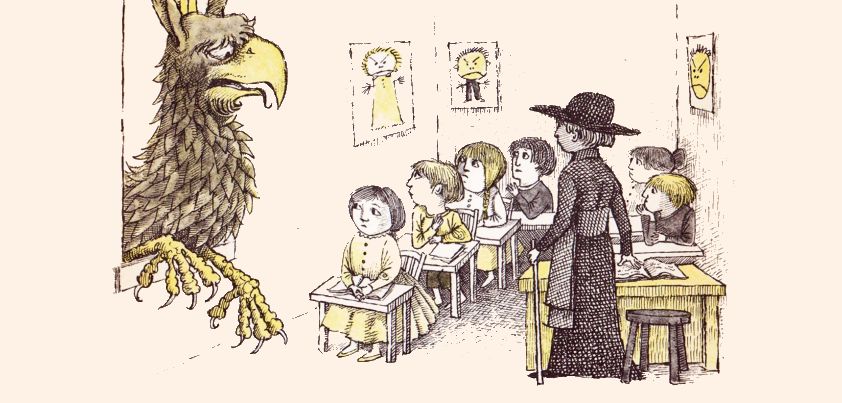 It is hard to believe this and our other featured Frank Stockton story (The Lady or the Tiger) were written over 130 years ago. Both have a crisp, modern feel and enough ghoulish humor to satisfy most young readers. This story, which takes the form of a fairytale, involves a friendship between a griffin and hard-working priest. The worried villagers suggest that their visitor dines on the children at an orphanage in the next town, but the griffin thinks the priest is the only one in the area worth eating. Themes: vanity, bravery, dedication, friendship, fear, sacrifice. More…
It is hard to believe this and our other featured Frank Stockton story (The Lady or the Tiger) were written over 130 years ago. Both have a crisp, modern feel and enough ghoulish humor to satisfy most young readers. This story, which takes the form of a fairytale, involves a friendship between a griffin and hard-working priest. The worried villagers suggest that their visitor dines on the children at an orphanage in the next town, but the griffin thinks the priest is the only one in the area worth eating. Themes: vanity, bravery, dedication, friendship, fear, sacrifice. More…
Born Worker
 The main theme of this story by Gary Soto is that there is honor in honest hard work, and accordingly no shame in having a manual or menial job. It also deals with some common social stereotypes. On the one hand we have Jose, representing the hard-working, down-to-earth, family-oriented Mexican working class; on the other, Arnie, representing an exploitative, materialistic, entitled Mexican middle class. Soto contrasts Jose’s hard work with Arnie’s fast-talking attempts to get a “free ride”. Jose bears his sun-darkened Mexican looks proudly; Arnie prefers to claim French heritage and a “Portuguese or Armenian” complexion. More…
The main theme of this story by Gary Soto is that there is honor in honest hard work, and accordingly no shame in having a manual or menial job. It also deals with some common social stereotypes. On the one hand we have Jose, representing the hard-working, down-to-earth, family-oriented Mexican working class; on the other, Arnie, representing an exploitative, materialistic, entitled Mexican middle class. Soto contrasts Jose’s hard work with Arnie’s fast-talking attempts to get a “free ride”. Jose bears his sun-darkened Mexican looks proudly; Arnie prefers to claim French heritage and a “Portuguese or Armenian” complexion. More…
Fox Hunt
 This story by Lensey Namioka is a blend of legend and reality . A studious Asian-American boy preparing for the PSAT exam is the only one in his class without a “study buddy”. The boy is pushed to do well by his father, who is descended from a long line of Chinese scholars. One day, his mother tells him a tale about how an ancestor was helped in his studies by a huli, or fox spirit disguised as a girl. Shortly afterwards, the boy meets his own huli. Themes include culture, alienation, pressure to succeed, determination, friendship, coincidence vs. the supernatural. More…
This story by Lensey Namioka is a blend of legend and reality . A studious Asian-American boy preparing for the PSAT exam is the only one in his class without a “study buddy”. The boy is pushed to do well by his father, who is descended from a long line of Chinese scholars. One day, his mother tells him a tale about how an ancestor was helped in his studies by a huli, or fox spirit disguised as a girl. Shortly afterwards, the boy meets his own huli. Themes include culture, alienation, pressure to succeed, determination, friendship, coincidence vs. the supernatural. More…
Monkeyman
 W. D. Myers’s Monkeyman is a quiet, bookish senior high-school student who steps in to prevent two “lady” members of a street gang from slashing the face of a girl he knows. The rest of the gang is honour-bound to extract payback. Instead of hiding, he challenges one of them to meet in a park. As a large crowd gathers to watch, Monkeyman does something that surprises everyone. Three weeks later, he is fighting for his life in hospital. At the time, the narrator thinks Monkeyman’s actions in the park were stupid. Years later, he/she thinks differently. More…
W. D. Myers’s Monkeyman is a quiet, bookish senior high-school student who steps in to prevent two “lady” members of a street gang from slashing the face of a girl he knows. The rest of the gang is honour-bound to extract payback. Instead of hiding, he challenges one of them to meet in a park. As a large crowd gathers to watch, Monkeyman does something that surprises everyone. Three weeks later, he is fighting for his life in hospital. At the time, the narrator thinks Monkeyman’s actions in the park were stupid. Years later, he/she thinks differently. More…
Melvin in the Sixth Grade
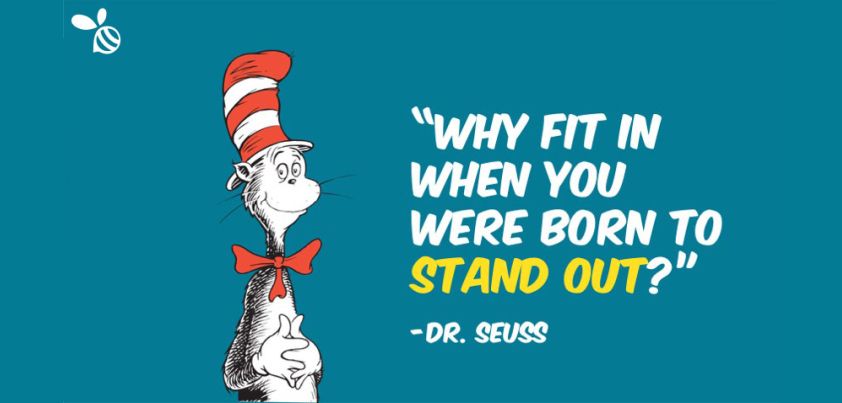 The major theme of this story by Dana Johnson is maintaining one’s identity vs. the desire to “fit in”. A sixth grade girl is having trouble settling in at a new school. The only African-American in class, she is ostracized and made fun of because of her race and appearance. Her only friend is Melvin, a strange-looking boy from Oklahoma she describes as “my beautiful alien from Planet Cowboy”. Melvin appears proud of his identity. She is so desperate to be accepted by the others that, when forced to choose, she forsakes him. Other themes: racism, bullying, appearance, friendship, betrayal. More…
The major theme of this story by Dana Johnson is maintaining one’s identity vs. the desire to “fit in”. A sixth grade girl is having trouble settling in at a new school. The only African-American in class, she is ostracized and made fun of because of her race and appearance. Her only friend is Melvin, a strange-looking boy from Oklahoma she describes as “my beautiful alien from Planet Cowboy”. Melvin appears proud of his identity. She is so desperate to be accepted by the others that, when forced to choose, she forsakes him. Other themes: racism, bullying, appearance, friendship, betrayal. More…
Click-Clack the Rattlebag
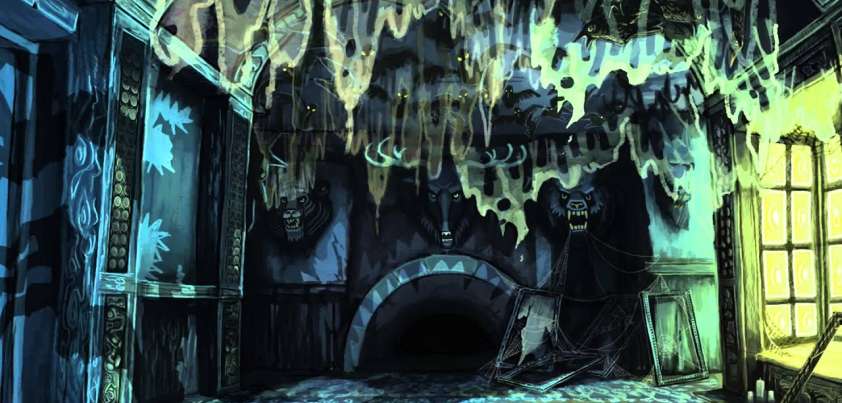 This short campfire-style horror story by Neil Gaiman sucks you in (no disrespect to Click-Clacks intended) and then at the very end surprises. A young man is spending time with his girlfriend’s much younger brother. The boy asks for a bed-time story that is “a little bit” scary. In describing what he means by this the boy tells the man about Click-Clacks, “the best monsters ever”, that come from the dark when you don’t pay attention. We are left wondering how the narrator is still around to tell the tale. Themes include fear, awareness, manipulation, the power of storytelling. More…
This short campfire-style horror story by Neil Gaiman sucks you in (no disrespect to Click-Clacks intended) and then at the very end surprises. A young man is spending time with his girlfriend’s much younger brother. The boy asks for a bed-time story that is “a little bit” scary. In describing what he means by this the boy tells the man about Click-Clacks, “the best monsters ever”, that come from the dark when you don’t pay attention. We are left wondering how the narrator is still around to tell the tale. Themes include fear, awareness, manipulation, the power of storytelling. More…
Names/Nombres
 This is a personal essay reflecting incidents in the life of author Julia Alvarez. On the one hand, it examines the important relationship between name and identity in Hispanic culture. On the other, it highlights the desire for migrants, especially children, to ‘fit in’ with an anglicized name that is easily pronounced. Finally, we have her mother’s wisdom in saying that it doesn’t matter, quoting the English idiom A rose by any other name would smell as sweet. In the final paragraph, the girl wonders what name she will go by when she is well-known. We now know the answer! More…
This is a personal essay reflecting incidents in the life of author Julia Alvarez. On the one hand, it examines the important relationship between name and identity in Hispanic culture. On the other, it highlights the desire for migrants, especially children, to ‘fit in’ with an anglicized name that is easily pronounced. Finally, we have her mother’s wisdom in saying that it doesn’t matter, quoting the English idiom A rose by any other name would smell as sweet. In the final paragraph, the girl wonders what name she will go by when she is well-known. We now know the answer! More…
Popularity
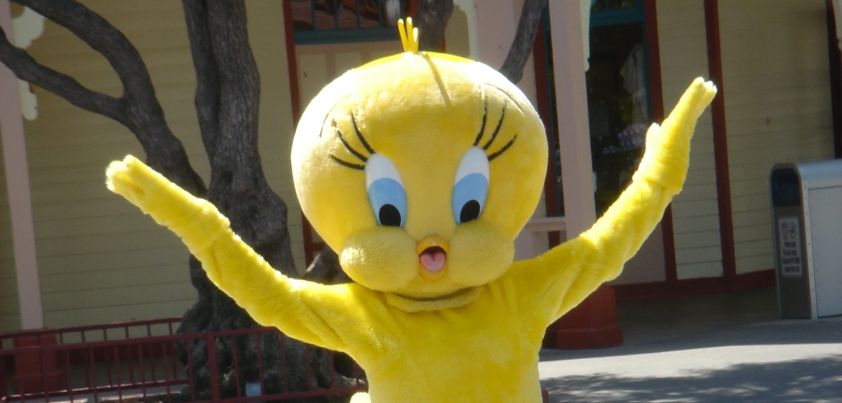 The protagonist in this story by Adam Bagdasarian is a ten-year-old boy who has trouble making friends at school. His biggest wish is to be able to hang out at recess with the most popular group in fourth grade. He decides that the only talent he has that might gain him entry is his sense of humor. When the opportunity arises to make a joke, he is an instant success. However, he never feels secure among the group because his inclusion was at the expense of another member. Themes include alienation and loneliness, fitting-in, the shallow nature of teenage popularity. More…
The protagonist in this story by Adam Bagdasarian is a ten-year-old boy who has trouble making friends at school. His biggest wish is to be able to hang out at recess with the most popular group in fourth grade. He decides that the only talent he has that might gain him entry is his sense of humor. When the opportunity arises to make a joke, he is an instant success. However, he never feels secure among the group because his inclusion was at the expense of another member. Themes include alienation and loneliness, fitting-in, the shallow nature of teenage popularity. More…
The Legend of the Christmas Rose
 The major themes of this Christmas story from Selma Lagerlöf are faith, forgiveness, redemption and, of course, the supernatural (the miracle of the Christmas garden). When the wife of an infamous outlaw is discovered admiring a monastery’s herb garden, she tells its Abbot that his prized garden is nothing compared to the one that emerges from the snow outside their forest hideout each Christmas Eve. In the hope of getting her husband pardoned, she agrees to lead the Abbot to see the miracle. Other themes: judging by appearances, mistrust, and materialism (the idea that the poor are closer to God). More…
The major themes of this Christmas story from Selma Lagerlöf are faith, forgiveness, redemption and, of course, the supernatural (the miracle of the Christmas garden). When the wife of an infamous outlaw is discovered admiring a monastery’s herb garden, she tells its Abbot that his prized garden is nothing compared to the one that emerges from the snow outside their forest hideout each Christmas Eve. In the hope of getting her husband pardoned, she agrees to lead the Abbot to see the miracle. Other themes: judging by appearances, mistrust, and materialism (the idea that the poor are closer to God). More…
The Master Cat; or, Puss in Boots
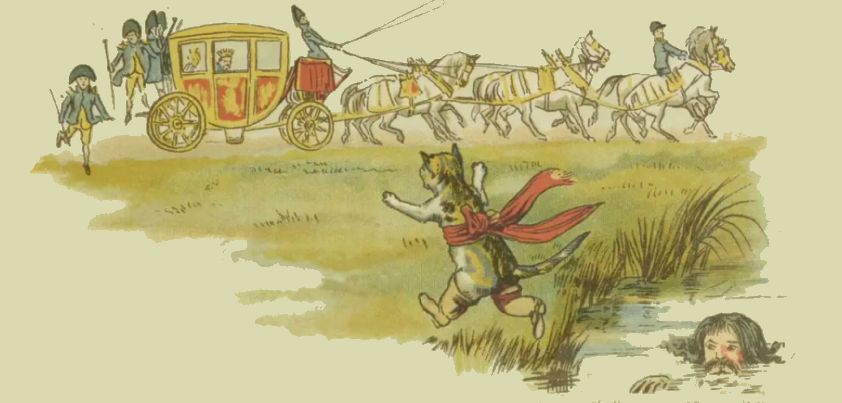 Puss in Boots is sometimes criticized for the mixed message it sends to children. Derived from a 14th Century Italian folktale, a clever cat helps its slow-witted master win the heart of a princess through trickery, lies, threats and theft. To condemn the story because of this seems a little unfair, since folklore is full of likeable tricksters whose crimes are far worse than the cat’s. These characters often play an important role, challenging traditional beliefs through satire. Here, the cat’s actions show up both the greed and gullibility of the king and the shallowness of his daughter. More…
Puss in Boots is sometimes criticized for the mixed message it sends to children. Derived from a 14th Century Italian folktale, a clever cat helps its slow-witted master win the heart of a princess through trickery, lies, threats and theft. To condemn the story because of this seems a little unfair, since folklore is full of likeable tricksters whose crimes are far worse than the cat’s. These characters often play an important role, challenging traditional beliefs through satire. Here, the cat’s actions show up both the greed and gullibility of the king and the shallowness of his daughter. More…
The Great Rat Hunt
 This memoir from Laurence Yep includes themes of father-son relationships, accepting differences, and facing fear. A young boy with severe asthma feels left out when he can’t join his father and brother in practicing ball games. Everything changes after they notice signs of a rat in their apartment. When poison and an exterminator don’t work, the father borrows a gun and invites the boys to join him in a hunt. Although no shots are fired, the father claims success. The narrator shares a “trophy” and learns some important lessons about fatherly love and focusing on one’s strengths rather than weaknesses. More…
This memoir from Laurence Yep includes themes of father-son relationships, accepting differences, and facing fear. A young boy with severe asthma feels left out when he can’t join his father and brother in practicing ball games. Everything changes after they notice signs of a rat in their apartment. When poison and an exterminator don’t work, the father borrows a gun and invites the boys to join him in a hunt. Although no shots are fired, the father claims success. The narrator shares a “trophy” and learns some important lessons about fatherly love and focusing on one’s strengths rather than weaknesses. More…
Real Food
 In this story by Chimamanda Ngozi Adichie, the term real food means food that is traditional to a culture. In Nigeria, the staple traditional dish is a type of flour known as garri. The girl in the story feels sick when she eats “swallow” (small lumps of cooked garri dough dipped in soup). She complains that it makes her throat itch, which indicates she may be allergic to it. Although the girl’s educated mother is understanding and accommodates her eating preferences, less informed relatives see this as a sign that she has abandoned her culture. Themes: family, culture, identity. More…
In this story by Chimamanda Ngozi Adichie, the term real food means food that is traditional to a culture. In Nigeria, the staple traditional dish is a type of flour known as garri. The girl in the story feels sick when she eats “swallow” (small lumps of cooked garri dough dipped in soup). She complains that it makes her throat itch, which indicates she may be allergic to it. Although the girl’s educated mother is understanding and accommodates her eating preferences, less informed relatives see this as a sign that she has abandoned her culture. Themes: family, culture, identity. More…
My Lucy Friend Who Smells Like Corn
 Many of Sandra Cisneros’s stories are vignettes (narrative descriptions without a plot). This one provides a snapshot of a young girl’s relationship with her friend Lucy. The two girls identify as Chicanos (USA born Mexican-Americans). Cisneros makes extensive use of Chicano dialect and fragmented sentences to create a realistic atmosphere. The narrator’s tone (feisty) is also typical of Chicano youth. The main theme is, of course, friendship. However, a closer read will reveal deeper themes and emotions beneath the narrator’s bravado. These include ‘aloneness’ (the wish for a large, close family like Lucy’s) and envy for Lucy’s freedom and independence. More…
Many of Sandra Cisneros’s stories are vignettes (narrative descriptions without a plot). This one provides a snapshot of a young girl’s relationship with her friend Lucy. The two girls identify as Chicanos (USA born Mexican-Americans). Cisneros makes extensive use of Chicano dialect and fragmented sentences to create a realistic atmosphere. The narrator’s tone (feisty) is also typical of Chicano youth. The main theme is, of course, friendship. However, a closer read will reveal deeper themes and emotions beneath the narrator’s bravado. These include ‘aloneness’ (the wish for a large, close family like Lucy’s) and envy for Lucy’s freedom and independence. More…
The Treasure of Lemon Brown
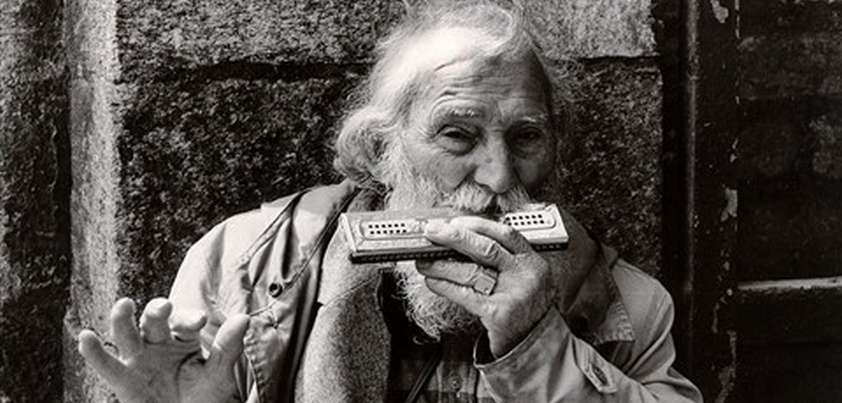 The ‘Treasure’ in this Walter Dean Myers story comprises press clippings and an old harmonica that Lemon Brown gave his son before he went off to war. Their value lies in the memories they represent. Meeting Lemon teaches protagonist Greg about the human side of homelessness, and that not all match the stereotype of being dirty, lazy or crazy. He also learns to be more appreciative of his father’s efforts to build a career after having to leave school at thirteen. We are left wondering if it will also result in Greg trying harder at math. Themes: father-son relationships, homelessness. More…
The ‘Treasure’ in this Walter Dean Myers story comprises press clippings and an old harmonica that Lemon Brown gave his son before he went off to war. Their value lies in the memories they represent. Meeting Lemon teaches protagonist Greg about the human side of homelessness, and that not all match the stereotype of being dirty, lazy or crazy. He also learns to be more appreciative of his father’s efforts to build a career after having to leave school at thirteen. We are left wondering if it will also result in Greg trying harder at math. Themes: father-son relationships, homelessness. More…
Blue
 In this story by Francesca Lia Block, a girl abandoned by her mother finds temporary comfort in stories about how much her mother loved her told by an imaginary creature living in her closet. When she shares this with a school friend, she is ridiculed and ostracized by classmates. A class assignment to “write about someone we love” provides an opportunity for the girl to put her thoughts and feelings about her mother on paper. This helps her face the loss, and gives her the courage to go on alone. Themes include family, loss, isolation and loneliness, healing through writing. More…
In this story by Francesca Lia Block, a girl abandoned by her mother finds temporary comfort in stories about how much her mother loved her told by an imaginary creature living in her closet. When she shares this with a school friend, she is ridiculed and ostracized by classmates. A class assignment to “write about someone we love” provides an opportunity for the girl to put her thoughts and feelings about her mother on paper. This helps her face the loss, and gives her the courage to go on alone. Themes include family, loss, isolation and loneliness, healing through writing. More…
The Ant-Lion
 In this story by Judith Wight, a brother and sister playing in the Australian bush discover the pit of an ant-lion larvae. Out of curiosity, the boy drops small ants into it. When these prove easy prey, and against his sister’s protests, he drops a much larger meat-ant into the pit. He prevents the meat-ant’s desperate attempts to escape, and the two watch in silent horror as the meat-ant’s abdomen is severed from its body. Disgusted, the two run from the scene. Themes include childhood curiosity, the cruelty of mankind vs. cruelty in nature, horror, shame. More…
In this story by Judith Wight, a brother and sister playing in the Australian bush discover the pit of an ant-lion larvae. Out of curiosity, the boy drops small ants into it. When these prove easy prey, and against his sister’s protests, he drops a much larger meat-ant into the pit. He prevents the meat-ant’s desperate attempts to escape, and the two watch in silent horror as the meat-ant’s abdomen is severed from its body. Disgusted, the two run from the scene. Themes include childhood curiosity, the cruelty of mankind vs. cruelty in nature, horror, shame. More…
A Kidnapped Santa Clause
 The major theme of this Christmas story by L. Frank Baum is the triumph of good over evil. Five daemons (creatures that thrive on naughtiness) are angry with Santa Clause because his gifts and messages of goodwill discourage children from visiting their caves. Upon realizing that Santa will never change, they kidnap him as he begins his Christmas deliveries. When Santa’s assistants notice this, they complete his rounds and return with an army of magical immortals to rescue him. Other themes: loyalty, duty and (as reflected in the names of the daemons) selfishness, envy, hatred, malice and redemption. More…
The major theme of this Christmas story by L. Frank Baum is the triumph of good over evil. Five daemons (creatures that thrive on naughtiness) are angry with Santa Clause because his gifts and messages of goodwill discourage children from visiting their caves. Upon realizing that Santa will never change, they kidnap him as he begins his Christmas deliveries. When Santa’s assistants notice this, they complete his rounds and return with an army of magical immortals to rescue him. Other themes: loyalty, duty and (as reflected in the names of the daemons) selfishness, envy, hatred, malice and redemption. More…
Priscilla and the Wimps
 In addition to this being Richard Peck’s first young adult story, it is one of his most popular. This is undoubtedly because it not only follows the age-old success formula of a victorious underdog, but does so in the context of humiliating a school bully. Another plus is that the denouement is left to the reader’s imagination. Does Pricilla come back later in the day to release Monk? Do her or Melvin’s parents phone the school and arrange for the locker to be opened? Or do they come back in a week’s time and find that Monk is an ice-block? More…
In addition to this being Richard Peck’s first young adult story, it is one of his most popular. This is undoubtedly because it not only follows the age-old success formula of a victorious underdog, but does so in the context of humiliating a school bully. Another plus is that the denouement is left to the reader’s imagination. Does Pricilla come back later in the day to release Monk? Do her or Melvin’s parents phone the school and arrange for the locker to be opened? Or do they come back in a week’s time and find that Monk is an ice-block? More…
A Crush
 Although this story from Cynthia Rylant touches on romantic feelings, it is more about how an act of friendship helps a socially challenged young man develop the courage to face the world. Jack, a group home carer, takes a special interest in one of its residents (Ernie). Thanks to Jack, Ernie finds peace and purpose growing flowers. As they grow, so does Ernie’s self-confidence. When Ernie decides to anonymously share his flowers with a woman he is attracted to, he unknowingly creates positive change in the lives of two people he doesn’t even know. Themes: isolation, beauty, friendship, love, sharing. More…
Although this story from Cynthia Rylant touches on romantic feelings, it is more about how an act of friendship helps a socially challenged young man develop the courage to face the world. Jack, a group home carer, takes a special interest in one of its residents (Ernie). Thanks to Jack, Ernie finds peace and purpose growing flowers. As they grow, so does Ernie’s self-confidence. When Ernie decides to anonymously share his flowers with a woman he is attracted to, he unknowingly creates positive change in the lives of two people he doesn’t even know. Themes: isolation, beauty, friendship, love, sharing. More…